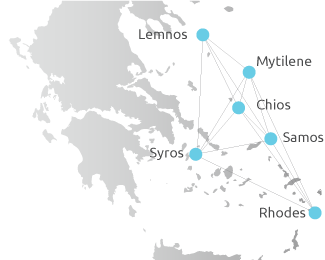Who can become a member of the Library?
All members of the academic community of the University of the Aegean are entitled to a library card, in particular:
- undergraduate students, postgraduate students, doctoral candidates
- faculty and
- administrative and other staff of the University of the Aegean
Moreover, the Library can also issue a member card to some special categories of users. In particular, the Library issues a member card to:
- students and teaching staff who attend the University within the framework of inter-university cooperation programess (e.g. ERASMUS)
- undergraduate and postgraduate students of the Hellenic Open University (HOU) who reside on islands with operating Units (Schools and Departments) of the University of the Aegean Library and
- other visitors, provided that the Library Branch Head approves the membership request.



